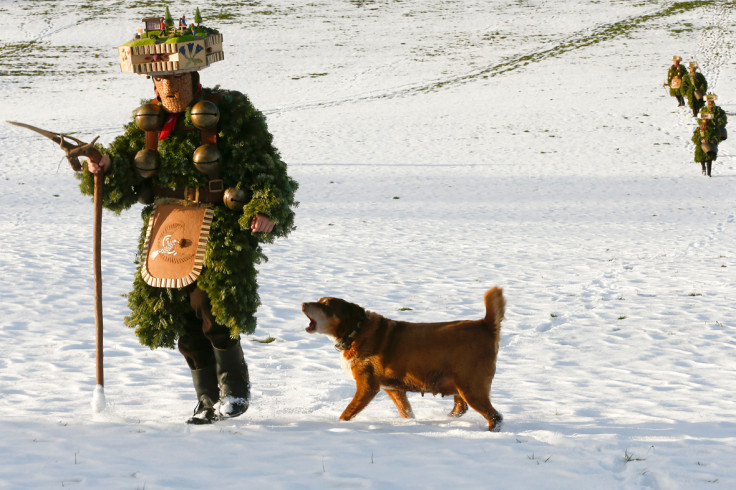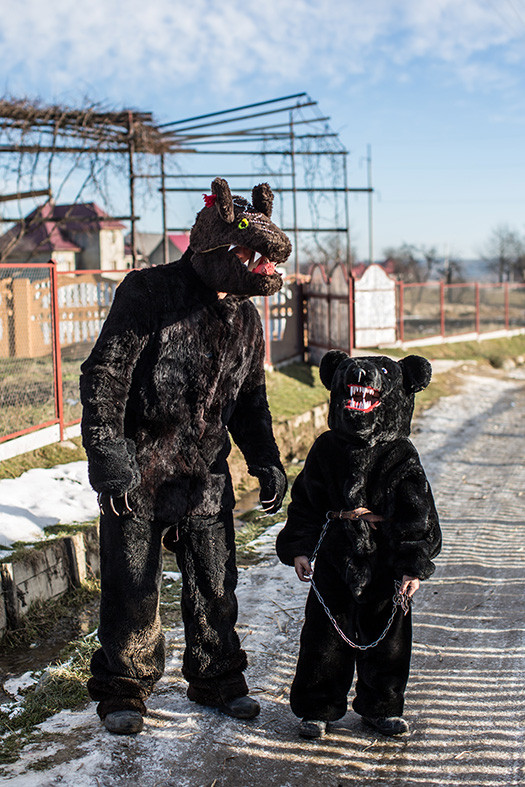Orthodox New Year 2017 celebrated in Christian communities
Orthodox Christians around the world celebrate the New Year on January 14.

As many of us prepare to face Blue Monday, Orthodox Christians around the world were busy celebrating on Saturday (January 14).
The celebrations marked the Orthodox New Year, two weeks after January first, in line with the Julian calendar rather than the Gregorian calendar.
The Julian Calendar was introduced by Julius Caesar in 46 BC as a reform of the Roman Calendar. The Gregorian calendar – named after Pope Gregory XIII - was adopted by most of western Europe from the late 16<sup>th century, except for Turkey, which switched in 1926.
The date of the so-called Old New Year varies between different, depending on whether it is set according to the revised or traditional Julian Calendar. For some countries' Orthodox communities, celebrations begin on the evening of January 13.
In some parts of Wales, the occasion is also still celebrated as Hen Galan, which was traditionally more important than Christmas Day.
Celebrations began on January 13, as men would go shooting, while women cooked food such as goose and plum pudding. Children visited local houses singing traditional rhymes to wish neighbours health and happiness for the year ahead.
In Russia, though the Russian Orthodox Church uses the Julian calendar, New Year's Day is celebrated in line with the Gregorian date and falls on January 1, which is a public holiday. However, the country generally combines secular traditions with those the Orthodox church, and informally observes the old new year with traditional meals.
Happy Orthodox New Year!! 😊 🎄 🎉 🎆 🎊 🎇 🎈 🎠💞 💕 #HappyOldNewYear #Serbia #Srbija #srecnasrpskanovagodina #srpskanovagodina #photo #photography pic.twitter.com/HsZa1EZ0rV
— Marija Trajković (@marijatr96) January 14, 2017
Macedonia and Switzerland, where festivities are celebrated in the Appenzell region as Alten Silvester, both mark the old New Year.
It is also observed in parts of Belarus, Bosnia and Herzegovina, Georgia, Uzbekistan, Azerbaijan, Montenegro, Moldova and Ukraine.
Ukraine and Belarus celebrate Malanka tonight, a very intriguing folk holiday. These pics by @belsat_tv show one village getting down. pic.twitter.com/fcyCdMxzF0
— Maria Antonova (@mashant) January 13, 2017
In Ukraine, a variety of elaborate and colourful costumes are worn by revellers who go from house to house singing traditional songs to celebrate the winter festival of Malanka.
Malanka celebrations are thought by some to originate from a Ukrainian folk tale about a young woman called Mylanka – from where the festival's name is taken - who represents spring, and overcomes evil to spread greenery and flowers across the world, hence the celebration welcomes the coming spring at the beginning of the year.

© Copyright IBTimes 2025. All rights reserved.






















